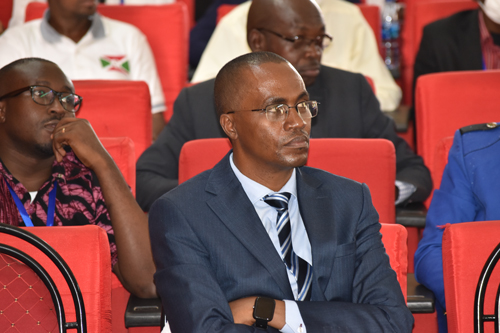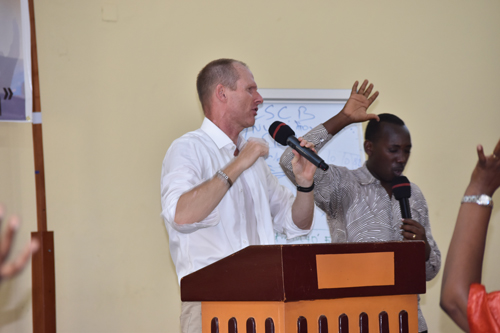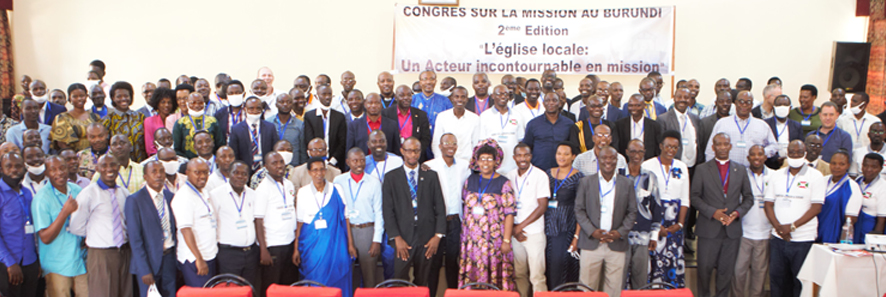The timing of my last visit to Burundi was in order to attend the strategic congress launched by Burundi Mission Alliance. It was the brainchild of Onesphore Manirakiza, so I asked him to write a report in summary. Over to you, Onesphore:
“For still the vision awaits its appointed time; it hastens to the end – it will not lie. If it seems slow, wait for it; It will surely come; it will not delay.”
Habakkuk 2:3
It had been always my dream to see church leaders from different churches in Burundi sit around the table discussing local and global mission. I held this dream from 1997 when God called me to be a part of such a movement which seemed so inconceivable at the time. The reality on the ground was so very different. There were many obstacles preventing it from happening. The repeated civil wars had divided the churches along ethnic lines, but also many churches had lost their commitment to unity and collaboration, instead competing and undermining each other.
I had to wait until 2017 to see the first gathering of leaders from different denominations and backgrounds celebrating the introduction of the gospel in Burundi and its impact on society. We had the opportunity to meet those (or the living descendants of those) who brought us the gospel. That was 20 years on from when I first had the dream of a mission conference. During that particular conference, missionaries to Burundi prophetically handed over the responsibility to indigenous leaders.

What had begun as an event (mission congress) gave birth to a mission movement. The following year, we had a follow-up conference during which leaders expressed the need of a platform that would host and facilitate this movement of taking the gospel from the heart of Africa to the ends of the earth. That is how the Burundi Mission Alliance was born gathering 3 denominations, 3 independent churches and 5 para-church organizations and operating through 7 task forces in order to catalyze a missional movement from Burundi to the nations.
We met again this year in another mission conference to celebrate the achievements we had made thus far and to remind each other that local churches are indispensable in mission. We had 150 delegates from different denominations, independent churches and local mission organisations.
During our plenary sessions, we had a breakthrough where you could see that people wanted to overcome the historical barriers that divided the church of Burundi and prevented it from participating in the global mission. The leaders of the Baptist Union shared with the participants how missionaries and the first Burundian leaders had worked in unity and had been able to overcome the divisions in the country and the persecution against the emerging evangelical church.
Younger delegates were moved to hear leaders of the Baptist church – just about every Baptist pastor was murdered in 1972 – affirming and thanking the leaders of the Anglican church for the role they played in protecting their churches for 7 years. The Holy Spirit used that holy moment to unite participants and heal the wounds of the past. You could sense God’s reconciling Spirit tangibly filling the room.
It is with tears of joy that I am writing these sentences.
Many of us who had been waiting for this time were convinced that the Lord was bringing to a close a dark chapter in the history of the church in Burundi and opening a new chapter of hope, unity and partnership in local and global mission.

How have we come to this momentum? The Lord has been putting together the pieces of the puzzle during the last 20 years. Simon Guillebaud came to Burundi as a missionary following in the footsteps of his ancestors back in 1999. Though his beginnings were small (working with Scripture Union), he quickly came up with a vision of empowering the body of Christ in Burundi for the work of the ministry (Ephesians 4:11-12). That is how Great Lakes Outreach was born. When he came back from 2 years in the USA back in 2012, he started gathering the leaders of the organisations GLO was supporting in a monthly breakfast meeting. Those meetings became a great connector that transformed former competitors into genuine co-workers.
When the crisis broke out in 2015, those leaders were among the few in the country who could stand up and speak for peace and non-violence. What had begun as evil God turned it to be a blessing for the Burundian church. We formed CIP (Christian Initiatives for Peace) through which our trust increased and led us to this missional movement.
I am so grateful to the Lord who has orchestrated all these things. I honour my dear friend and colleague Simon for having laid down his life as a worker for the renewal of the Burundian Church. May the Lord bless all the people who responded to Simon’s call for help from his first step in Burundi until now. God used them to fuel this vision and catalyze the transformation in Burundi. What was a dream twenty years ago is now a vision and has many leaders to accomplish it. Praise the Lord!





